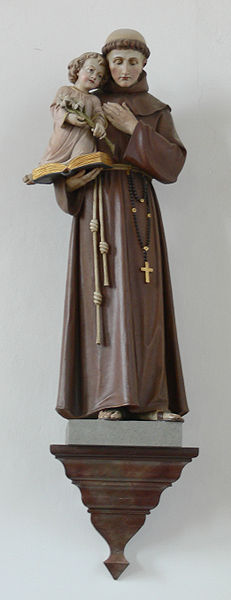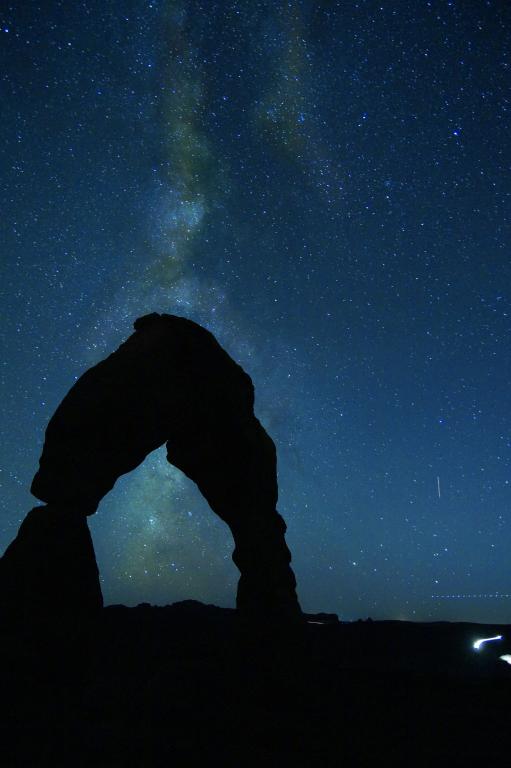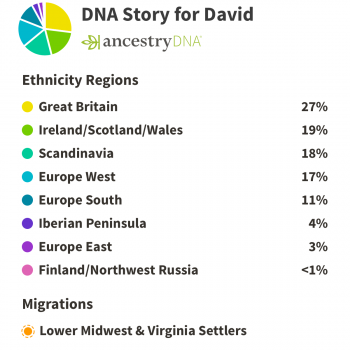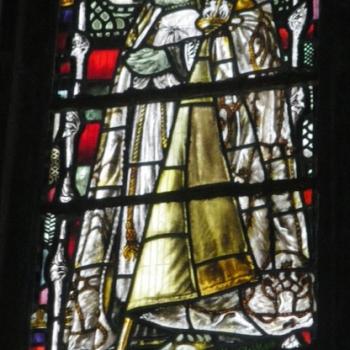David Russell Mosley

Description
Oberzell, Ortschaft Taldorf, Stadt Ravensburg
Kirche zur Schmerzhaften Muttergottes Antonius-Figur des 19. Jahrhunderts
Date August 2008
Source Own work (own photograph)
Author Photo: Andreas Praefcke
Ordinary Time
11 January 2017
The Edge of Elfland
Hudson, New Hampshire
Dear Readers,
You’ve almost certainly seen it, an article, like this one, which declares that a Brazilian woman has unintentionally been praying to a small figurine of Elrond from The Lord of the Rings. Maybe you laughed, I did a little. Maybe you made good-hearted jokes about St. Elrond and wondered whether St. Frodo existed, as some of my friends did. It was a bit funny and quite adorable. You see, the Brazilian woman in question believed the figurine to be one of St. Anthony, and so she used it as an aid when she prayed to St. Anthony. All good and fun, especially for those who understood that this woman was not praying to the toy but was praying to the saint she believed the toy represented.
When the article first broke I didn’t share it. Mostly because I wouldn’t have been able to keep myself from being a killjoy and pointing just what I have done, that the woman was not praying to the “statue.” Once you make that explicit, it becomes less funny. Sure, a person praying to Elrond, thinking him a saint in the Church would be a bit funny (and a bit sad), but that’s not what was going on here. Still, she was praying to a saint and I know that many of my fellow protestants would take issue with that alone. In fact, one fellow protestant, and fellow Patheos (though on a different channel) blogger, did take issue.
Dr. Corey wrote an article yesterday which he entitled, “When Bad Theology Tricks You Into Praying To A Toy (Should We Pray To Saints?).” The title alone shows that Dr. Corey fell prey to the same mistake all the secular outlets did. He acts as though this woman was praying to the toy, when she was praying to the saint she believed the toy to represent. This leads Corey to go on a diatribe against the practice of praying to saints. He even writes in his conclusion, “This is precisely what we see in this tragic story of the woman who spent years praying to a plastic toy from a movie. She could have spent all that time praying to God, just like Jesus instructed his followers to do.”
You see, Corey sees praying to saints as serving in place of praying to God. He even likens it (in a rather bad analogy) to calling to some guy you once knew in DC rather than call the president directly (if that were on offer to you). Of course, praying to saints doesn’t function this way at all. Rather than being like calling some guy you once knew in DC, praying to a saint would be more like calling the president’s Chief of Staff to ask the president a question. Even this analogy is incomplete, for praying to saints (which is in fact primarily asking saints to pray for you) is not something you do in place of praying to God. It can become that, in which case it becomes idolatry, but to suggest it is that by nature would be akin to suggesting that you can either love God or love your wife but you cannot love both. Instead, of course, in a proper relationship you love God by means of your love for your spouse. It isn’t an either/or.
Now, I know that many of my fellow protestants will not be convinced by this, and frankly, unless we’re willing to admit tradition is or at least can be a source of authority, I’m not sure we can ever fully come to terms with issues like this one. But, let me say a few things in its defense, especially against charges laid out by Dr. Corey.
First, Dr. Corey notes that praying to saints came into the church in the 3rd century along with other crazy ideas. As an example he notes that all Christians prior to the third century were pacifists. Of course, he provides no citations for this. He also ignores the fact that for many of the earliest Christians going to church meant going to the catacombs where other dead Christians were buried. But even if it were explicitly true that we had no evidence of Christians praying to departed Christians prior to the 3rd century this would still be an argument from silence (which it isn’t). You would still need to explain why Christians started praying to saints in the 3rd century when they hadn’t done so prior.
Dr. Corey also, in a strange twist (since he talks about himself as being a former fundamentalist) notes that the Bible nowhere enjoins us to pray to saints and the closest it gets to talking about the issue tells us not to talk to dead people. Interestingly, perhaps the only example of this is when Saul has the witch of Endor call up the spirit of Samuel. In this instance, the practice may have been wrong, but it certainly seems to have worked and Samuel appears to really talk to Saul. Also, Dr.Corey seems to miss the point that the problem was looking to the dead in order to divine future events, not asking holy people to pray for us.
Now, Dr. Corey’s biggest complaint is that this is a practice where you pray to someone else instead of praying to God. As I have noted, the practice is primarily to ask the holy departed to pray to God on our behalf. This practice cannot be suspect. As James writes in James 5.16 “The prayer of the righteous is powerful and effective.” Sure, this passage is in the context of healing and confessing sins, but the broader point is this: it is good and right to ask others to pray for you. What’s more, there appears to be the suggestion that some people’s prayer, due to their righteousness or holiness, is more effective than others. Does this passage enjoin us to ask dead Christians to pray for us: no. Does this passage enjoin us to ask others to pray for us: yes. Then, of course, there is the great cloud of witnesses referenced in Hebrews 12. Really, Dr. Corey needs to answer the question of what happens to departed Christians before he can determine whether or not, by the grace of God, they are capable of praying for us (the way even the rich man desired to pray for his brothers in the parable of the Rich man and Lazarus).
There are other things I could say, other points Dr. Corey has made I could attempt to refute. But here is the final point I want to make: If you disagree with the practice of praying to saints, you need to understand precisely what that practice really is, what its origins are, and why you disagree with it. It seems to me that Dr. Corey has not given the time necessary to actually understand what this practice is or why it shouldn’t be practiced. Disagree, by all means, but don’t be like the atheists who argue against a god’s existence that even you don’t believe in.
Sincerely,
David












